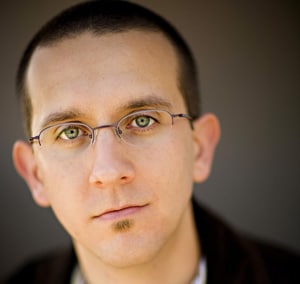
Heath Haussamen
In the wake of the Aurora massacre we can, and perhaps should, debate the role of guns in our society. But as long as we focus on that at the expense of working to solve our core problems, we’re seeking a Band Aid instead of true societal healing.
Hours after the shooting at a movie theater in Aurora, Colo. on Thursday, a friend told me he was essentially hoping the tragedy would spark a conversation that would lead to greater gun-control measures.
I had the opposite reaction: I told him I thought it was too bad no one in the theater was carrying a concealed handgun.
But as the media facilitated a debate about gun control – and whether it was even appropriate to debate gun control in the wake of such a tragedy – I came to believe we were failing to focus on what matters most.
We could ban assault weapons such as the semi-automatic rifle used in the theater shooting and we wouldn’t stop every massacre. Some would still find a way to get their hands on such weapons; others would simply use shotguns, or hunting rifles, or handguns. And if we banned those too, they’d find other ways to spread death and chaos.
Similarly, we could allow people to legally carry concealed weapons in every state, and there would still be places where horrific crimes would occur without well-meaning, gun-toting citizens near enough to help. And there’s always the possibility that such a citizen could make a mistake and exacerbate the situation, though there are plenty of examples in America of them stopping crimes.
Though either potential solution might help combat crime, neither addresses the deeper societal question fewer have been discussing since the Aurora massacre: What drives people to commit such atrocities?
The answer is complex. Some suffer from mental illness. Some are dealing with struggles such as divorce or loss of a job. Some are hardened by what life has done to them. And those superficial stabs at providing partial answers don’t even scratch the surface.
We can be better than this
But there is a lot we can do to create a society in which fewer people are driven to commit such crimes, and the solution goes far beyond government alone. It includes our nonprofits, our churches and other religious institutions, our businesses, and each of us.
We need to work toward goals that include lower unemployment and poverty rates, more effective schools, more affordable health care, better access to services, improved infrastructure including roads and Internet lines, stronger families and community support systems, and better care for the mentally ill.
Many work toward these goals every day. But are we as a society doing enough? How many of us are involved in figuring out how government can help address these issues? How many of us donate time and money to organizations that work to fix these problems? How many of us could afford to give a little more but opt to spend it on ourselves instead?
On an individual level, how many of us are willing to truly sacrifice to help out a friend or family member in need? How many of us know someone who is depressed or on edge but aren’t offering help? How many of us have concerns about the way a neighbor or classmate is acting but fail to share those concerns with someone who can get them help they may need – and potentially stop a massacre?
Some of you are giving everything you have, and I commend you. Some are working toward solutions to society’s woes but could do more. I find myself in that category. And some are doing little or nothing at all.
We need to do more. As a society, we’re capable of doing more. We can be better than this.
We can, and perhaps should, debate the role of guns in our society. But as long as we focus on that at the expense of working to solve our core problems, we’re seeking a Band Aid instead of true societal healing.
